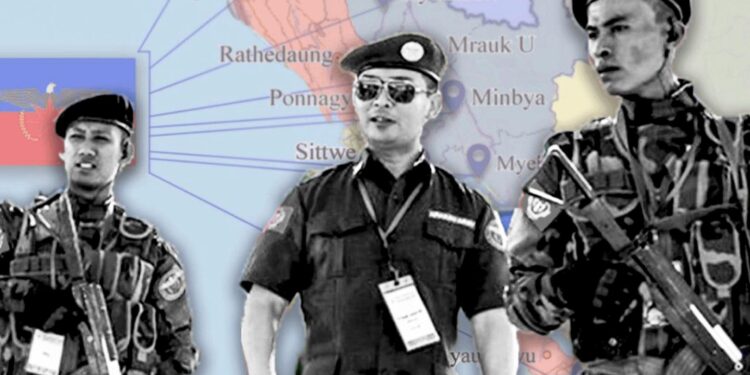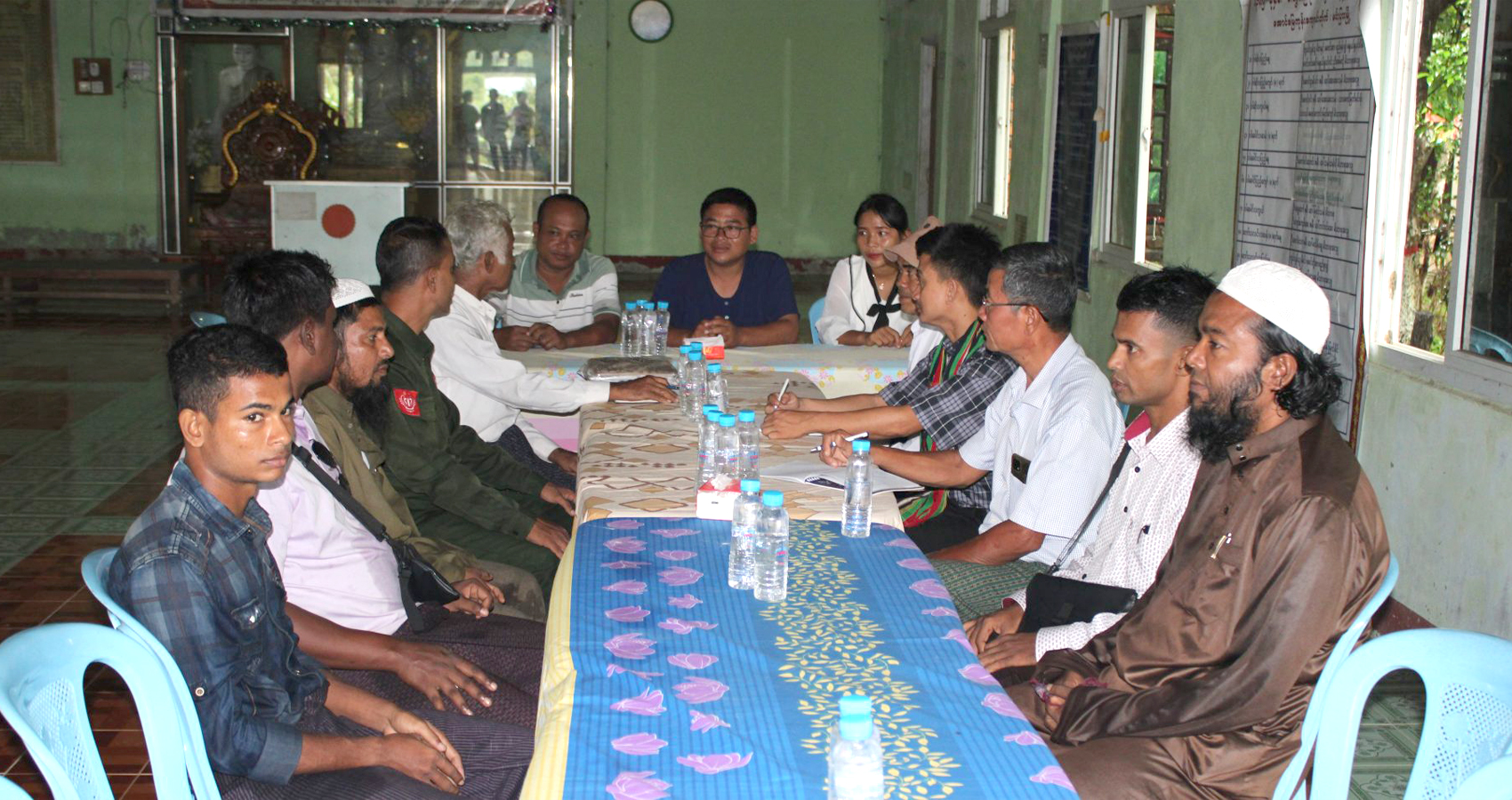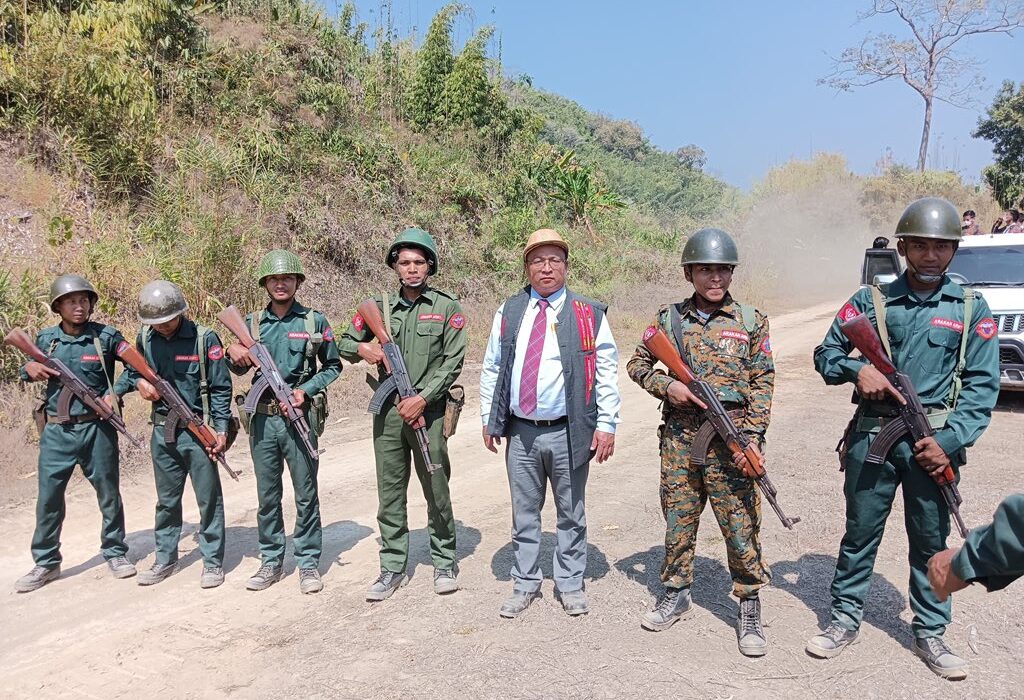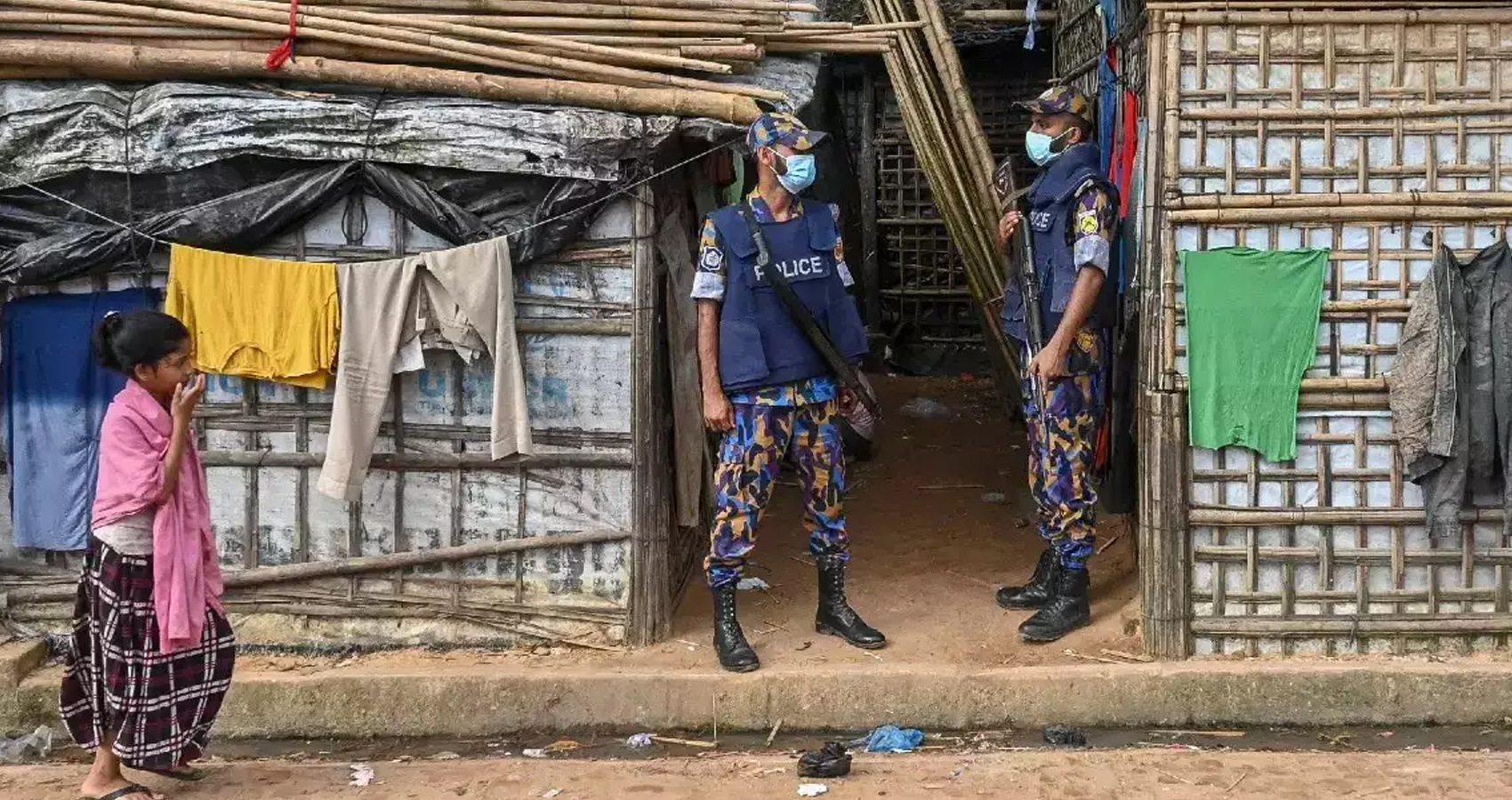 By Banyar Aung
By Banyar Aung
The ethnic Arakan Army (AA) has achieved major gains since launching its Rakhine offensive in November 2023, seizing control of 14 out of 17 townships in the western state. Of the three townships still under junta control, battles are ongoing in Sittwe and Kyaukphyu while Manaung is the only township where clashes have not been reported.
The AA has also captured territory along the Naf River, including Maungdaw, Buthidaung, and Chin State’s Paletwa Township, effectively securing the entire border with India and Bangladesh. This military achievement has led to notable political shifts:
Paving the way for ties with Bangladeshi, Indian governments
With the AA now in full control of the borders, both the Indian and Bangladeshi governments have had to engage with the ethnic army while stopping short of officially recognizing it. Bangladesh is in direct contact with the AA, while India is engaging through the Mizoram state government. Reports suggest that the AA has even opened an office in Mizoram.
In April, there were reports of direct communications between the AA and Bangladeshi authorities, prompting the Myanmar regime to lodge a formal protest with Bangladesh.
Bangladesh’s National Security Advisor Khalilur Rahman and Foreign Ministry Advisor Touhid Hossain responded that the regime had lost control of its western border, and the interim Bangladeshi government would engage with any group it deemed necessary to protect and promote national interests.
“The entire stretch of our border with Myanmar is now under the control of non-state actors. The central government has no authority there. Therefore, in our own interest, we must maintain some form of communication,’ said the Bangladeshi foreign advisor.
AA spokesperson Khaing Thukha welcomed his recommendation to engage with the AA.

Paving the way for border trade
The junta has responded to the latest outbreak of Rakhine conflict by imposing its notorious “four cuts” on the local population – a counter-insurgency strategy to cut off food, funds, intelligence and popular support for resistance groups fighting for self-determination. While basic foods remain accessible, the regime blocked essential goods such as medicine, fuel, clothing and building materials from reaching Rakhine, resulting in price hikes and shortages.
However, the AA and the Rakhine people benefited from the non-interventionist stance taken by neighboring India and Bangladesh, who declined to collaborate with the regime by enforcing blockades to pressure the AA. Instead, they acknowledged the reality on the ground and allowed limited cross-border trade.
Cross-border trade with Mizoram continues, with occasional disruptions due to bans imposed by local authorities and community groups. Currently, hundreds of traders are engaged in the Mizoram border trade, which is estimated to be worth billions of kyats annually. Given the economic benefits, India is unlikely to close this border. Meanwhile, border trade between Rakhine and Bangladesh has started to resume.
With the borders open, Rakhine residents now have access to medical treatment and pharmaceuticals in Bangladesh and India, alleviating healthcare challenges. Goods shortages have also eased, and commodity prices have dropped by nearly half since the early days of the conflict.
Border trade has also allowed locals to sell their agricultural and seafood products. Though trade is still well below pre-conflict levels, locals are now better placed to endure the junta’s blockade.

AA’s Role in Handling Muslim Refugee Crisis Recognized
Bangladeshi government advisors have publicly stressed the need to engage with the AA regarding border issues and the Rohingya refugee crisis, and the government appears to be listening.
UN Secretary-General António Guterres emphasized the importance of engaging with the AA to address the Rohingya issue during his visit to the refugee camps in Cox’s Bazar in Bangladesh on March 14.
Hossain, the Foreign Ministry advisor, said that while Bangladesh cannot officially recognize the AA, it acknowledges that communication is necessary for national interests.
The Bangladeshi government hopes to facilitate the repatriation of Rohingya refugees to Rakhine, having signaled satisfaction with the security and living conditions of Rohingya in AA-controlled areas.
The head of the transitional government has proposed creating a safe zone for Rohingya refugees within Rakhine. Meanwhile, Bangladesh’s largest Islamist political party, Jamaat-e-Islami, has proposed the creation of an independent Rohingya state in Rakhine. While there are challenges regarding these proposals, integrating Rohingya as equal citizens alongside other Rakhine residents will pave the way for Rohingya repatriation.
Meanwhile, Bangladeshi government advisors have stressed that resolving the refugee crisis requires engagement not only with Myanmar’s regime but also with the AA and parallel National Unity Government (NUG) – which marks a significant shift in Bangladesh’s approach to the Rakhine situation.

Muslim Insurgency
Since fighting erupted in early 2024 in Buthidaung, Muslim armed groups – including the Arakan Rohingya Salvation Army (ARSA), Arakan Rohingya Army (ARA) and Rohingya Solidarity Organization (RSO) – have collaborated with the regime against the AA, sparking a rise in racial and religious tensions.
After junta troops were cleared out of Maungdaw and Buthidaung townships in December last year, the ARSA, ARA and RSO vowed to team up and fight the AA from Bangladesh’s borderlands.
The Muslim armed groups continue to receive arms and ammunition from Myanmar’s military regime. However, they lack support among Rohingya in Maungdaw, where the groups are extorting locals instead of fighting the AA.
While Rohingya organizations outside Myanmar take a critical view of the AA, they have no influence in the Bangladesh camps. Rohingya refugees in the camps are under the control of the armed Muslim groups, who carry out forced recruitment and hand them over to the Myanmar regime as conscripts. The armed groups are also accused of crimes including drug dealing in the camps.
In March, Bangladesh’s Rapid Action Battalion arrested and tried ARSA leader Ataullah Abu Ammar Jununi – a move suggesting that Bangladeshi government will not tolerate the Muslim militias.
Moves by the UN and Bangladesh to engage with the AA over the refugee crisis have paved the way for the ethnic army to raise the issue of Muslim insurgency on the border.
Problems will take time to resolve
Bangladeshi authorities initially supported the UN’s plan to establish a humanitarian aid corridor between Bangladesh and Rakhine to assist both Rohingya refugees and displaced civilians. However, strong opposition from Bangladesh’s army chief, who recently branded the initiative a “bloody corridor,” led to its suspension.
While the Bangladeshi government remains focused on resolving the refugee crisis, its military appears cautious about becoming entangled in geopolitical tensions between major powers like the US and China. However, while India’s stance on Rakhine will likely remain stable, Bangladesh’s political landscape could shift after its upcoming elections, potentially influencing its approach. Yet, given the military’s dominant role in decision-making, any changes will likely be measured rather than drastic.
Challenges in Rakhine remain complex, particularly regarding the Rohingya refugee crisis, which will take time to resolve. However, the AA’s military success has triggered major shifts, reshaping the political and diplomatic policies of neighboring countries.
The article appeared in the irrawaddy
